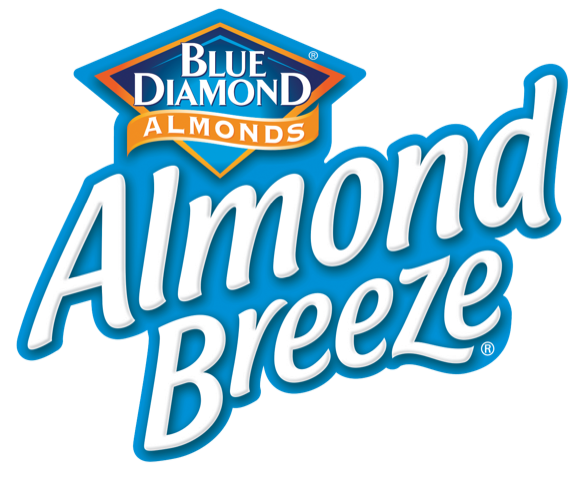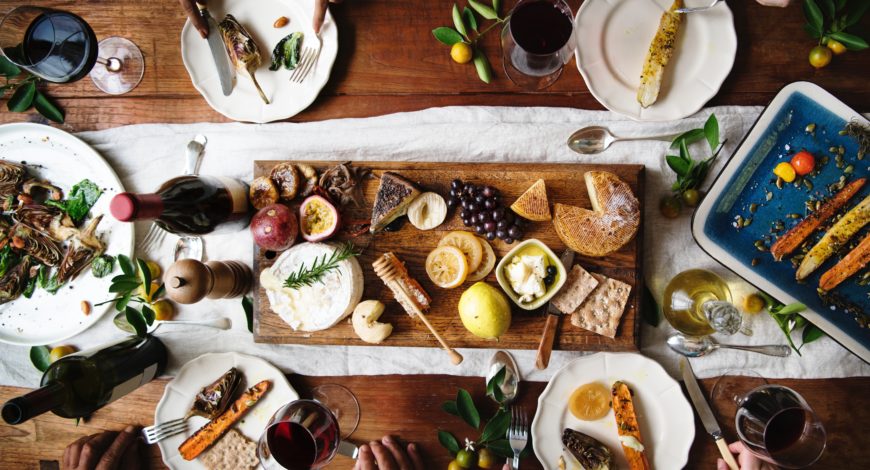Food has been at the centre of life celebrations for millennia and it’s easy to see why. It brings people together over a bounty of cultural and flavour experience.
This month we were so lucky to have such a celebratory food experience when world-renowned executive chef and multi-award-winning restauranteur Josh Emett created an incredible degustation Breeze the Day lunch menu to showcase the versatility of Almond Breeze almond milk. As we planned the delicious menu however, we discovered just how many dietary preferences people have in 2019, something that chefs like Josh are catering for more and more.
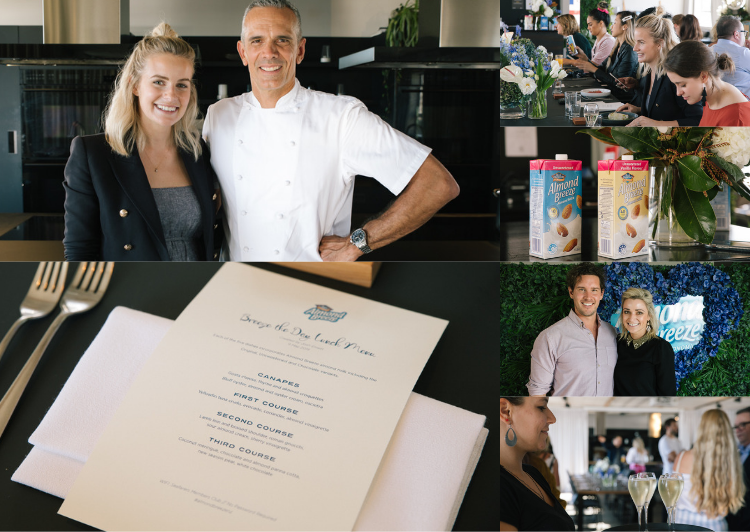
WATCH JOSH’S AMAZING MENU COME TO LIFE HERE
We’re proud too that Almond Breeze almond milk🥛works for all diets. It’s made naturally from super food almonds, grown by generations of Blue Diamond cooperative almond farmer families in California, ground into a paste, water added to create the consistency that you tell us is the one you most prefer. Perfect for anyone looking for a healthier lifestyle or with specific dietary requirements, such as the Candida, Diabetic and Paleo diet, as well as everything else!
Plus Almond Breeze almond milk is super low in calories and is an ideal low fat milk alternative with no saturated fats or trans-fats, as well as being 100% cholesterol-free and containing more calcium than some dairy milks. Great for a healthy heart!
And of course, Almond Breeze products contain no dairy, eggs, lactose, casein, peanuts or gluten. Sounds like it’s the perfect milk for every kind of diet… just saying! 😉

We realised that while many of us are familiar with popular dietary preferences, some we barely knew at all. So we thought we’d break it down into a simple guide covering 12 of the most common eating preferences in our Western world, with everything from eating trends to intolerances and allergies (this category is very, very important!).
Plus, now you can explain the less usual diet choices to your grannie!
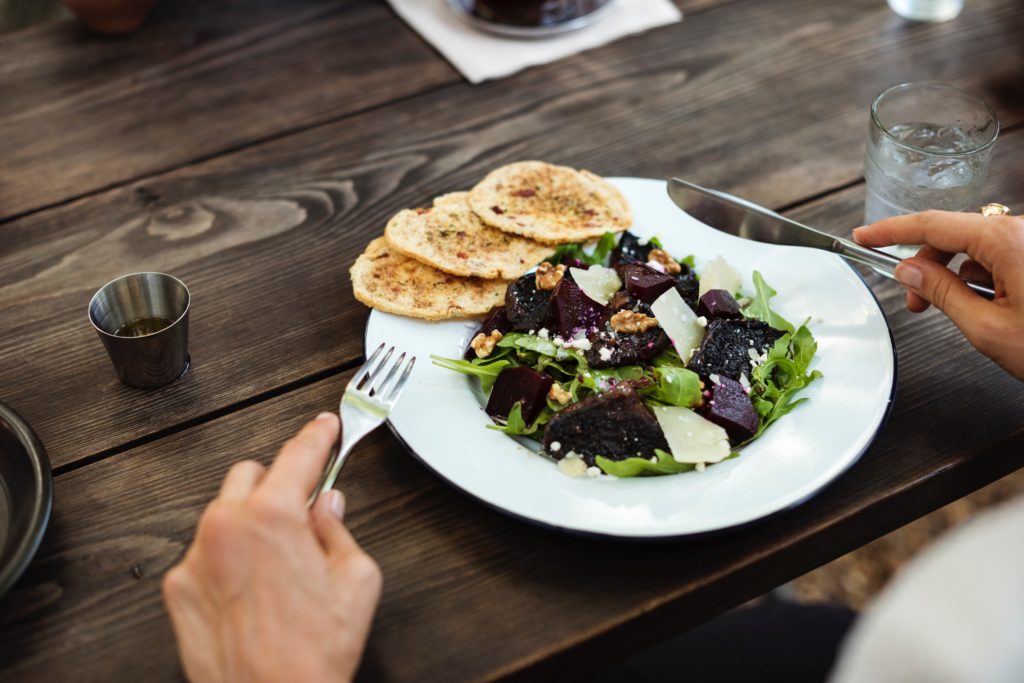
1. Candida
People on the candida diet avoid refined sugars, refined wheat, fruit, alcohol and most dairy products. Plus to kill candida overgrowth they ingest a lot of fermented foods packed with good bacterias, such as sauerkraut, kimchi, dairy-free kefir and kombucha, all of which balance and re-harmonise the sensitive microbiome; and coconut oil loaded with caprylic acid to stop candida growth in its tracks!
2. Coeliac
Coeliac disease (and dermatitis herpetiformis) is a very real disease that usually needs to be managed throughout a lifetime. People who have this suffer terrible consequences when they eat gluten such as wheat and oats. Coeliac disease is an immune system reaction which exponentially damages the lining of the gut the more gluten is eaten.
Because gluten is contained in many processed foods, they are best avoided in a coeliac diet. Also no pasta, wheat and oat breads, pizza, wraps, gnocchi, porridge, muesli, cakes, biscuits and slices. But on the can eat list are fruits and vegetables, rice, potatoes, pulses, meat, eggs and fish. They also have to avoid beverages such as beer.
3. Gluten-free
Unlike the coeliac who can end up in hospital with severe stomach cramps and abdominal pain, the person opting for a gluten-free diet may have experienced symptoms of intolerance, such as bloating after eating wheat or oats-based foods, or they may simply prefer not to eat gluten. Either way, in the no list are the same as coeliacs: no pasta, wheat and oat breads, pizza, wraps, gnocchi, porridge, muesli, cakes, biscuits and slices.
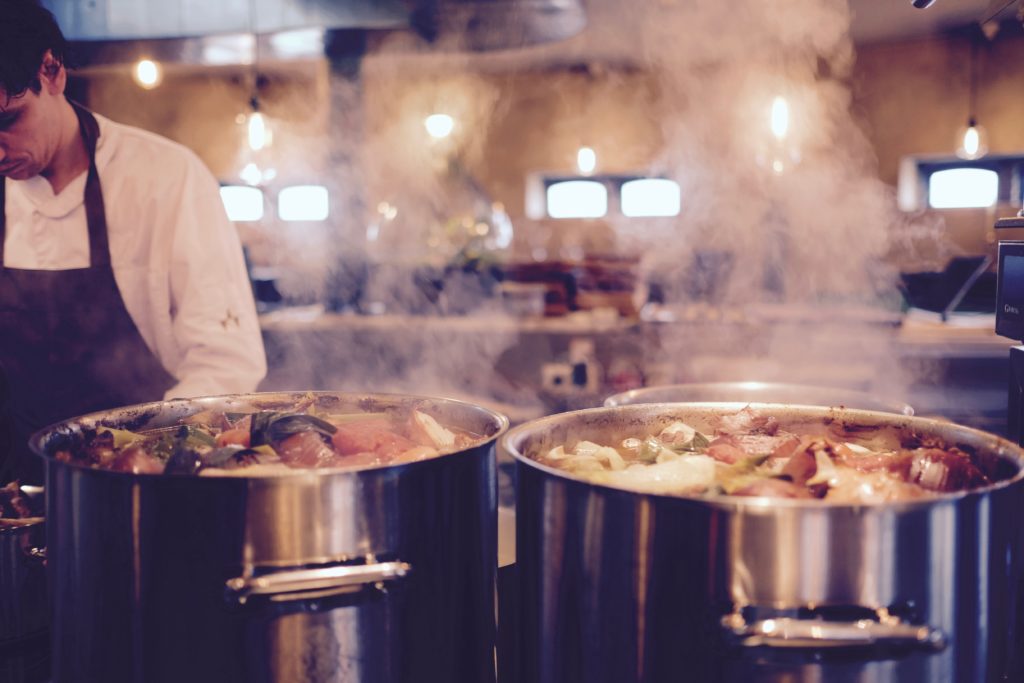
4. Halal
Halal food adheres to the Islamic faith and the requirement that animal are killed in a specific way while the name of God, Allah, is said during the process. Halal, the word in Arabic means “permissible”, so halal food simply refers to food that is permissible by the Koran. Some parts of an animal are considered to be not halal, or permissible, such as the hind quarters of an animal or blood of an animal. And pork is never permissible or halal under Islamic law.
5. Keto
The keto diet, or ketogenic diet is often described as Atkins 2.0, which was a popular way of eating in the 1970s and ’80s. Aitkins favoured eating all meats, fatty fish, eggs, full fat dairy, and low carb vegetables while omitting high carb, starchy vegetables like the potatoes, and avoiding breads and pasta. Keto is similarly low carb, high fat and is said to help in weight loss.
Keto provokes a reaction in the body where, by replacing carbs with fats, the body goes into a state of ketosis, where it starts to burn stored fats to use as energy. In this liver, this diet turns fat into ketones, which supply energy to the brain. There are different types of keto diets, each with variances in the balance of carbs to fats, and whether the keto diet is always “on”, or off on some days during the week, or hours around workouts.
6. Kosher
Similar to the Islamic halal to mean permissible, the etymology of the word kosher, or kasher, from “Kashrus” in Hebrew means “pure” and relates to forbidden foods. Kosher meats, as specified by the Torah, need to come from animals with “cloven hooves” that “chew the cud”. This of course eliminates a variety of meats, such as pigs and camels. And some birds and their eggs are in the “no” list too (not ones normally consumed in the west, such as eagles, owls, swans and pelicans).
People who eat kosher can eat beef, lamb, venison, goat, chicken, goat, and turkey. But they cannot eat non-kosher dairy (like camel milk). People being strict to the kosher restrictions (pure) need to eat only meat that has been killed by a kosher supervisor.
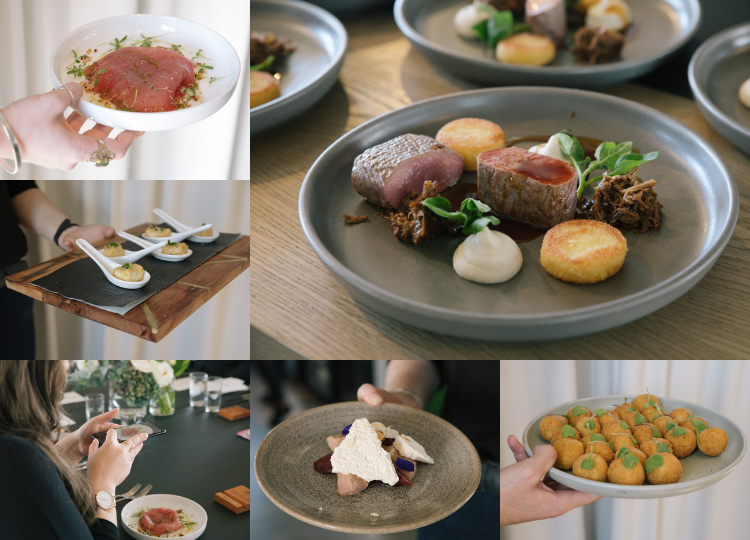
7. Paleo
The paleo diet is based on what people ate in the Palaeolithic period and the foods found through hunting and gathering. That is lean meats, fish, vegetables, fruit, nuts and seeds. But it doesn’t include dairy – milk, cheese, cream, yoghurt – grains – barley, brown rice, buckwheat, bulgur, millet, oatmeal, popcorn and whole wheat – and pulses and legumes – chick peas, peas, beans, alfalfa, lentils, lupins, carob, soybeans and peanuts.
The latter are all foods that emerged as part of agriculture and farming. Paleo is founded on a belief that the diet of ancient people is better suited to our bodies than the more recently farmed diet. So it also eliminates coffee, oils of any kind, salt, alcohol and sugar.

8. Pegan
This is a combination of the paleo diet of hunting and gathering and the vegan diet of being plant-based. So some meats, fish and eggs are eaten, and no dairy, grains and legumes are eaten. While it’s more similar to paleo than vegan, eaters of this diet suggest eating a diet of around 75% vegetables and fruits, and just 25% of meat, fish and eggs.
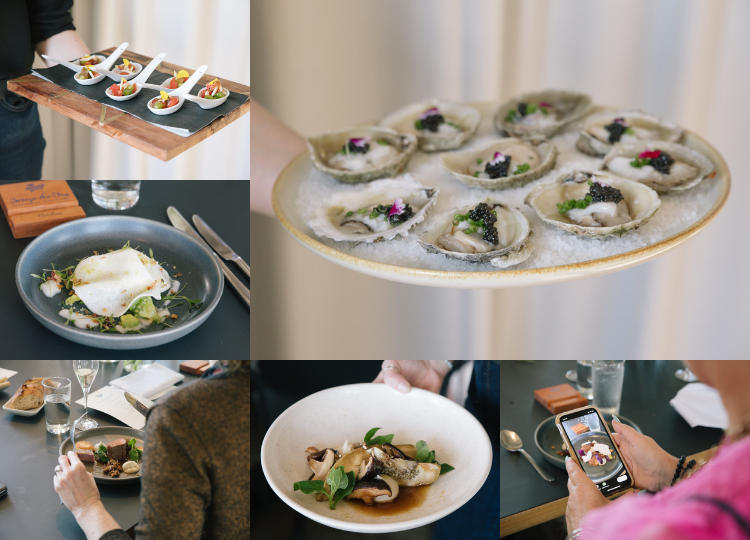
9. Pescatarian
At last, one that is simple to answer! This is a vegetarian who eats seafood. So they generally eat dairy, honey and pulses but no animal meat. Although some plant-based people call themselves pescatarian.
10. Plant-based or plant-powered
This is the healthiest type of vegan and built on a nutritional dietary plan. Plant-based diets are just that: if it grows, they can eat it! So it’s yes to fruits, vegetables, pulses and grains! People are increasingly choosing a plant-based diet based on environmental responsibility, health concerns or compassion for animals. By saying “plant-based” or “plant-powered” however leaves some flexibility (the flexitarian!) to incorporate some animal products some times, such as honey and wine (that is fined with eggs or animal blood).

11. Vegetarian
This is a diet where all meat and poultry is eliminated but dairy, honey and animal by-products such as gelatin from animal collagen are still consumed.
12. Vegan
Vegan is a lifestyle choice based on a plant-based diet. This is where someone eats NO meats, poultry, fish or animal by-products whatsoever, nor wears them. It is based on vegans making 100% cruelty-free life choices. So this means no wine unless it is explicitly vegan (and therefore not fined with eggs or animal blood), no gelatin, no dairy, no honey, no leather, wool, animal-tested products, animal-based glue and dyes (such as cochineal and carmine), honey-based soaps, serums and creams, and extends to pharmacy products such as fish oil and more.
WATCH JOSH EMETT CREATE MAGIC HERE
From our love of Almond Breeze almond milk to yours…
P.S….
Discover our amazing almondlicious recipes by clicking here!
